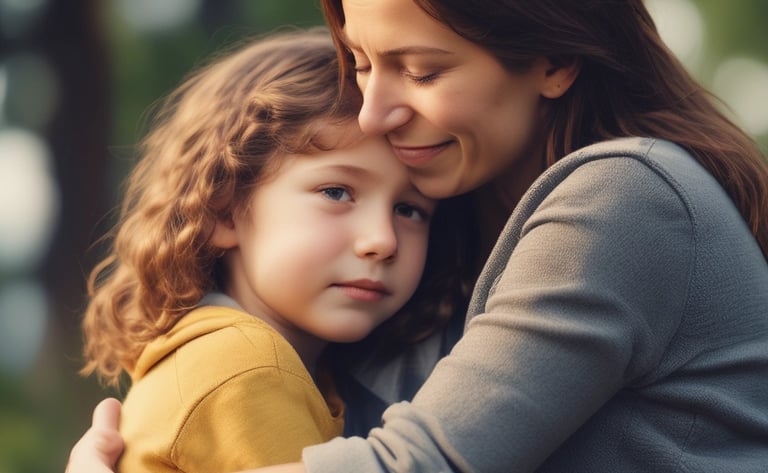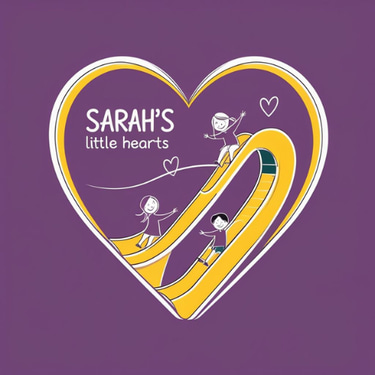"Big Feelings, Bigger Grace: Helping Toddlers Navigate Emotions"
Helping children with big feelings with God's love and understanding.
Sarah Atwell
10/26/20252 min read


Big Feelings, Bigger Grace: Helping Toddlers Navigate Emotions”
Teaching young children takes heart, energy, and a lot of patience. Galatians 5:22 speaks of the fruit of the Spirit, gently reminding us that God is present even in the smallest, messiest moments of the day.
“Rejoice with those who rejoice; mourn with those who mourn.” Romans 12:15
This verse affirms the importance of empathy and emotional attunement—beautiful for modeling emotional awareness.
Young children often don’t know the words to describe what they’re feeling. You can help by gently naming the emotion you see:
“You’re feeling sad right now.”
“That made you so frustrated, didn’t it?”
Naming the feeling helps toddlers feel seen and understood, and over time, it teaches them how to name their own emotions, too.
Stay Calm:
“A gentle answer turns away wrath, but a harsh word stirs up anger.” Proverbs 15:1
Perfect for encouraging calm responses and gentle speech during emotional storms.
Stay Calm (Even When They’re Not)
It’s not always easy, but your calm presence is powerful. When you take a deep breath and speak gently, you show your child that emotions aren’t scary and that they’re not alone.
If you need a moment, it’s okay to say, “I’m going to take a breath to help you better.”
That’s not just calming, it’s modeling emotional regulation.
Offer Choices:
“Let all that you do be done in love.” 1 Corinthians 16:14
Even small decisions and interactions can be rooted in love.
Giving toddlers a little control can ease frustration. Try simple, clear options like:
“Would you like to hold my hand or walk beside me?”
“Do you want the blue cup or the green one?”
Choices give toddlers a sense of independence without overwhelming them.
Reflect Later:
“Be kind and compassionate to one another, forgiving each other, just as in Christ God forgave you.” Ephesians 4:32
This verse supports the idea of revisiting challenging moments with kindness and grace.
After the storm passes, talk briefly about what happened:
“You were mad when we left the park. It’s hard to leave when you’re having fun.”
Describing to them the feelings you think they have teaches reflection and builds emotional awareness over time.
Final Thoughts
“Train up a child in the way he should go; even when he is old, he will not depart from it.” Proverbs 22:6
Big feelings are part of being a young child. Your toddler is learning how to feel, trust, and connect. Every time you stay present and offer words, you’re helping your child grow.
No one caring for children gets it perfect. But if you show up with love and a willingness to try, you’re making a difference and giving them tools that will help them as they grow.
